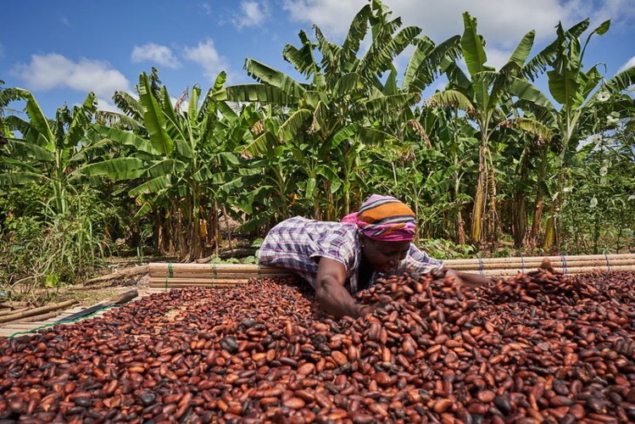A policy and advocacy think tank, Tsa-Ke-Mo is calling for stronger public policies to encourage value-addition to cocoa produced in Ghana and Cote D’Ivoire.
The group which is geared at promoting value addition and youth job creation from natural and agricultural resources said it is rather disappointing that Africa which produces 75% of the world’s cocoa only enjoys 2% of the world’s $100billion chocolate industry.
According to them, though there have been some indications by governments to address the huge disparity identified, not much has been realized due to a lack of strong policies and commitments.
An implementation of these policies they say will generate jobs and employment for Africa’s energetic youth population.
The Tsa-Ke-Mo, therefore, suggested some actionable policies to catalyse the growth of the cocoa value addition industry in Ghana and Cote D’Ivoire.
In a press statement to mark this year’s National Chocolate Week, Tsa-ke-mo called for 60% of cocoa produced in Ghana and Cote D’Ivoire to be retained and value added.
They stated that the 60% should be made more easily accessible to processing industries at affordable prices to ensure maximum participation of the country’s private sector.
They also called for the creation of a national fund for cocoa value addition capacity building and financing for the youth of the respective countries using at least 20% of cocoa export revenue.
They further stated that to serve as an incentive for private organisations and individuals to join the drive towards higher value addition for cocoa, new cocoa processing companies should be exempted from paying taxes in the first five years, whereas old cocoa processing companies should have their taxes reduced.
Tsa-ke-mo urged the governments of Ghana and Cote D’Ivoire to put in place a free import duty regime for industrial machines and equipment for industries involved in cocoa processing or chocolate manufacturing.
Finally, increase funding for cocoa research and product development in the respective countries will go a long way to help.
The group is optimistic that, these initiatives will increase employment opportunities, contribute to a more sustainable economy, and grant the governments some bargaining power over finished products which will then generate greater revenue for the countries.
Latest Stories
-
Doing business in neighbouring West African states will yield more dividends- Enterprise Group
36 seconds -
Don’t launch policies and hide documents- Oppong Nkrumah to government
21 minutes -
FC Zurich mutually terminate contract of Ex-Hearts forward Afriyie Barnieh
23 minutes -
GJA election: GBC’s King Freeman Nutsukpoe elected treasurer for Volta region
25 minutes -
This robe is not simply a mark of office, wear it with wisdom- Mahama urges newly sworn-in SC Justices
34 minutes -
A shielded gavel: The Chief Justice’s style
46 minutes -
Ghana and Mexico deepen sports diplomacy and youth development collaboration
48 minutes -
Cruise Control with Merqury Quaye gets fresh twist on Hitz FM
49 minutes -
Serve as stewards of justice, not arbiters of technicalities – Mahama charges new SC Justices
1 hour -
Why picking Trotro in Ghana can be a vibe: A Love Letter to the unexpected joys of Public Transport
1 hour -
Guinness Ghana and Castel Group announce strategic transition of majority ownership
1 hour -
Mahama swears in 7 new Supreme Court Justices
1 hour -
Clara Elisabeth Kukua Savage
1 hour -
‘Power to the students’ – NYA CEO Osman Ayariga condemns UPSA’s dress code enforcement
1 hour -
Ashanti Region: Impostor in police uniform arrested
2 hours

